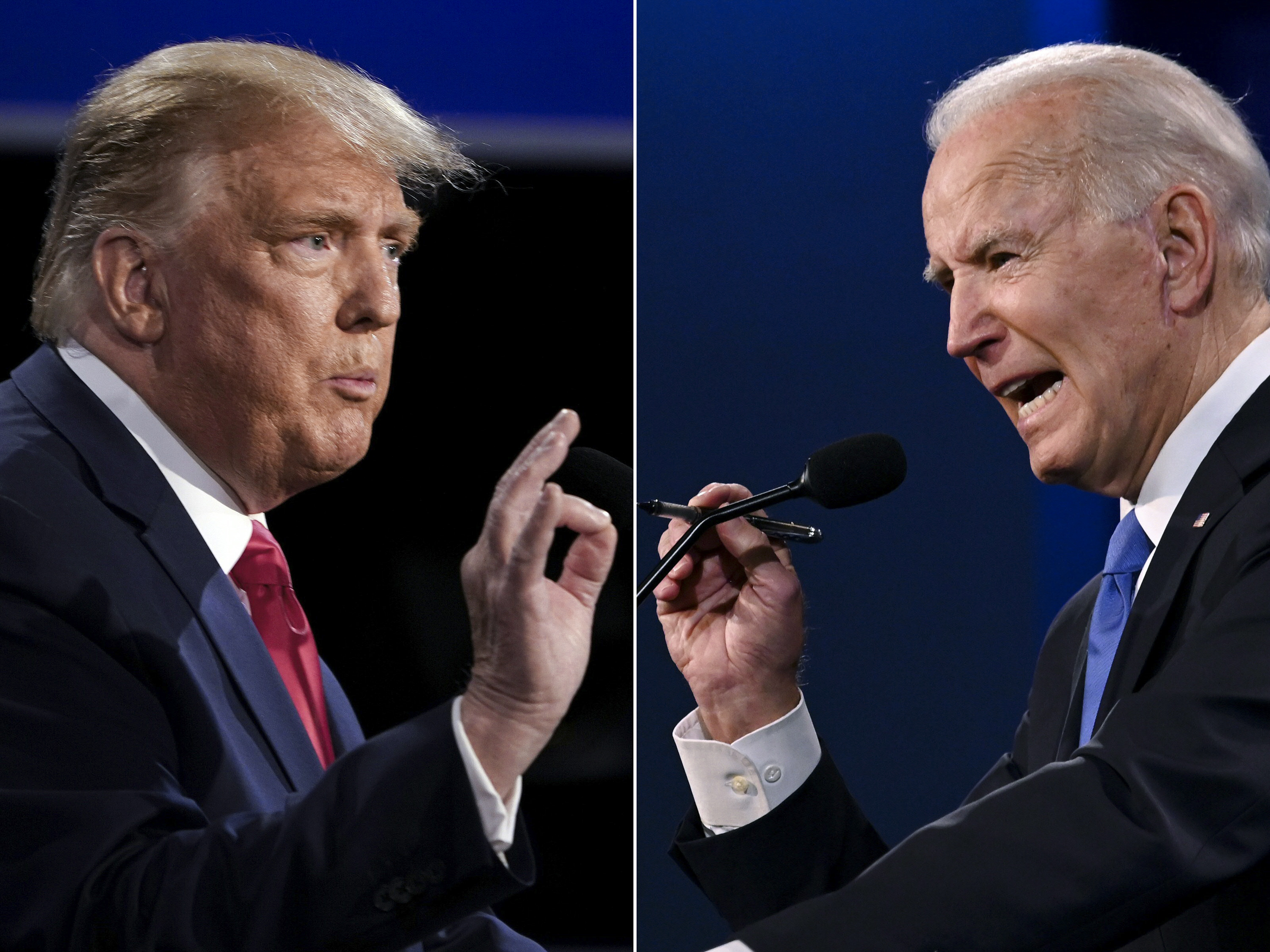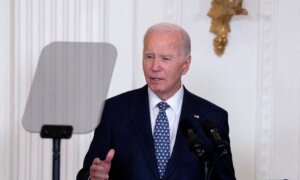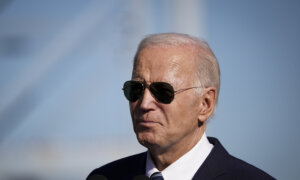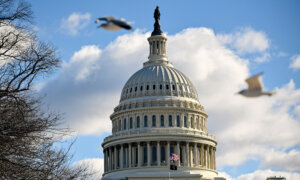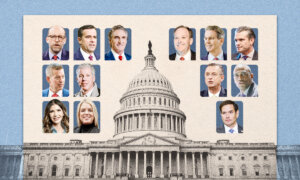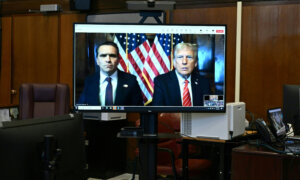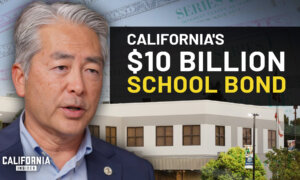Wrangling over the ground rules of presidential debates is a time-honored tradition that dates back to the first-ever televised debates in 1960 when John F. Kennedy refused to wear makeup on camera, and Richard Nixon followed suit.
The suntanned Democrat appeared youthful and vigorous while Nixon’s five-o’clock shadow and pallid complexion made him look haggard. Kennedy won the debate and the election, setting off a quadrennial contest to win debates before they begin by staging them on favorable terms.
Former President Trump and President Biden are no strangers to the debate prep two-step.
Before the 2020 debates, President Trump claimed that the 2016 debates had been biased against him and threatened not to participate in 2024.
He eventually agreed to debate but refused to take part in the second of three events, which would have been conducted remotely due to COVID-19 restrictions.
Meanwhile, President Biden’s campaign manager, Jen O’Malley Dillon, wrote to the Commission on Presidential Debates in 2020 trying to influence the planning. She said her candidate would participate only in debates sponsored by the Commission.
This year, Ms. Dillon again wrote to the Commission, listing complaints about debates and saying President Biden would participate only in debates not sponsored by that organization.
Responding to President Trump’s challenge to debate “anywhere, anytime, any place,” the Biden campaign proposed changes that guarantee this round of debates will differ significantly from 2020, and President Trump agreed.
Those changes include an unusually early date for the first debate, limiting the number of debates to just two, and skipping the usual walk-on entry to the debate stage, instead starting with both candidates standing at the podium.
Who won the debate over the debates? Here’s what experts are saying, and a breakdown of what will be different this time.
The Date
The first of two debates will be held on June 27, the earliest date ever chosen for a presidential debate. While Presidents Biden and Trump are both the presumptive nominees for their respective parties, neither has been definitively declared.The Republican National Convention will be held in July, and the Democratic Convention in August to formally place their names in nomination.
That timing is more likely to benefit President Biden, according to Henry Olsen, a senior fellow at the Ethics and Public Policy Center.
“I think the Biden campaign decided they need to take a gamble and have Biden go one-on-one with Trump early in the race, not later in the race,” Mr. Olsen told The Epoch Times. The theory is that a good showing by President Biden could inject new momentum into his campaign.
The real loser in this timing could be independent candidate Robert F. Kennedy Jr., who is working to meet CNN’s participation criteria. Mr. Kennedy would have to score 15 percent in an average of three national polls and be on the ballot in enough states to provide 270 electoral votes.
Yet by that time of the debate, only seven states comprising 110 electoral votes will have completed their ballot processes. Even so, Mr. Kennedy has said he intends to qualify.
“CNN published a list of criteria for candidates getting in, and we have shown CNN that we meet all of those criteria and that President Trump and President Biden cannot meet those criteria,” Mr. Kennedy said in a televised interview on May 19.
According to Mr. Kennedy, neither President Trump nor President Biden are on state ballots at this point because their parties haven’t officially nominated them.
The Host
Presidential debates have been hosted by the Commission on Presidential Debates, a nonpartisan, nongovernmental organization, since 1988. This year, both campaigns have agreed to sidestep the Commission and hold debates hosted by major television networks.CNN will host the first debate on June 27, and ABC will host the second on September 10.
Noting that CNN is viewed as friendly to President Biden and that more Trump-friendly Fox News was excluded from hosting, political analyst Faiz Shakir referred to the agreement as “the art of the poorly negotiated deal.”
After agreeing to the schedule, President Trump posted on social media that he would face President Biden in a third debate held by Fox News on October 3. The Biden campaign promptly refused to participate.
“No more chaos, no more debate about debates,” Ms. Dillon said in a May 15 statement.
“I’m still kind of shocked by it,” Mr. Shakir, who was campaign manager for Sen. Bernie Sanders (I-Vt.) in 2020, told The Epoch Times.
“Now you’re operating from a point of no leverage because you’ve already agreed to the terms.”
The Audience
There will be no live audience for the June 27 debate, which CNN said is to “ensure candidates may maximize the time allotted in the debate.” Also, moderators will turn off the candidates’ microphones when their allotted speaking time expires.Both measures appear to be aimed at eliminating clapping, booing, interruptions, and cross-talking, which dominated the first debate in 2020.
“That may help Biden,” Robert Speel, a professor of political science at the Pennsylvania State University at Erie, told The Epoch Times.
“Trump thrives on a cheering section and has been commenting in the past week that he thinks a live audience makes the debates more exciting,” Mr. Speel said. “Trump may figure out ways to talk anyway with a microphone turned off.”
That would be a mistake, according to Mr. Olsen. “It would be in Trump’s interest for it not to be a replay of the first debate [of 2020], where he was so uniformly obnoxious that he dropped quickly in job approval and poll ratings,” Mr. Olsen said.
He said he expects President Trump to give a more restrained performance this year.
The Momentum
Perhaps the most significant change in the debates from 2020 to 2024 is that the candidates have traded places. President Biden is now the incumbent and President Trump is the challenger.Where President Trump was dealing with COVID-19 during the last campaign, President Biden now labors under inflation, controversial wars in Ukraine and Gaza, divisive campus protests, chaos at the border, and an approval rating that has hovered below 40 percent for months.
All of those negative factors are a handicap to President Biden, none more so than inflation according to J. Edwin Benton, a professor of political science at the University of South Florida.
The economy has trumped international affairs as a voter concern for decades, Mr. Benton told The Epoch Times.
“Even back when the evening news was all about the war in Vietnam, all the major polls showed that seven of the top 10 issues on the minds of the American public were economically related—cost of living, inflation, jobs, and employment. So nothing really has changed,” he said.
That likely means President Biden will have to defend his record on the economy while attacking President Trump to “win” the debate. President Trump, however, may be able to influence independent voters by simply pointing out the problems in the economy and presenting himself as a positive alternative.
“Biden is behind, and when people are behind they go on the attack,“ Mr. Olsen said. ”I expect to see a much more attack-oriented Biden.”
That will indeed be the case, according to a strategy statement released by the Biden campaign on May 24.
Leading up to the debate, the campaign will attempt to portray President Trump as dangerously out of control beginning with a new video ad narrated by actor Robert De Niro.
The publicity campaign aims to set the stage for President Biden to challenge President Trump during the debate on abortion, tax cuts, and Social Security and Medicare reform and accuse him of embracing political violence.
President Trump is likely to focus on the core planks of his campaign: illegal immigration, crime, and, especially, the economy.
“Trump has that advantage in that he doesn’t have to offer a 10-point agenda for how he would fix the economy,” Mr. Shakir said.
“He has the opportunity to basically say, ‘This is what Biden did. He did terribly, I would do it better. Vote change.”
The Impact
It appears that both campaigns want the debates to be different from those in 2020. However, it’s less clear what difference those changes will make in voters’ behavior.Debates have less influence over voters than they did in the past, according to an analysis by Pew Research. Between 1998 and 2016, a majority of voters said debates were “very or somewhat helpful” in their voting choice.
In 2012 and 2016, just 10 percent of voters said they made up their minds “during or just after” the debates.
Yet, according to a May 22 survey published by Quinnipiac University, one in five are likely to change their minds about the candidates and seven in 10 are likely to watch the June 27 debate.
Many of those viewers will likely be online.
Whereas in 2020 the debates were available on 16 networks, according to the Nielsen company, and had audiences of 73.1 million and 63 million respectively, the upcoming debate will be carried on just one network and its online platforms.
“[The debates] will be interesting political theater, and people will likely interpret them, including the candidates’ performances, along partisan lines,” Ken Kollman, professor of political science at the University of Michigan, told The Epoch Times.
“This will be a national festival of confirmation bias and motivated reasoning.”
The Associated Press contributed to this report.
